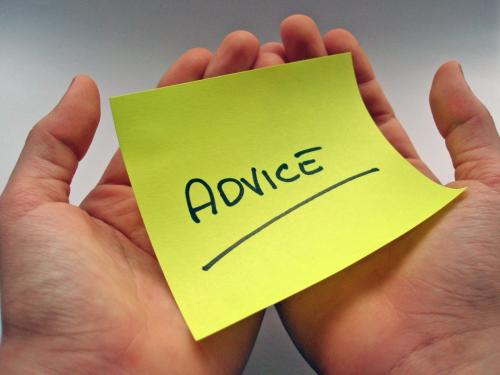Great advice can be priceless. The only problem is, when you hear it, it’s just plain advice. You only know if it’s great after the fact. Sometimes, as in the case of my college story, a very long time after the fact. Wouldn’t it be great if you could tell if the advice you’re getting is good or not? Well, you can. There are just certain factors I’ve learned to pay attention to. Some are logical; others are instinctive.
With that in mind, here’s my advice for you. Will it be great? I think so. But, as we both know, only time will tell. Here are five factors that will help you determine if the advice you’re getting will turn out to be great. They’ve never failed me yet.
What’s your state of mind? This is an internal factor that has nothing to do with the person you’re listening to, but it’s a critical one, nevertheless. I’ve gotten what turned out to be life-changing advice a handful of times. And each time, the best way to describe my state of mind was desperate. I believe that’s when you’re most receptive and open to ideas, to change. That’s when advice speaks to you. That, I believe, is also why necessity is the mother of invention.
Listen to your gut. Intuition may sound like a vague concept, but it can be a powerful tool in decision-making. If you can just be in the moment and focus on what the other person is saying without thinking, without judging or filtering it, you can listen with your feelings. If you can’t do that in real time, then try to do it after the fact, when you’re alone and it’s quiet. Yes, I know it sounds like mystical mumbo jumbo. It’s not. It’s called mindfulness and it’s science.
Consider the source. This is where things get a bit more logical. If the other person has a vested interest in the outcome, especially a financial one, forget it. Don’t listen. Ever. Also, if he’s not a subject matter expert–and clearly successful at it–forget it. My former girlfriend’s father was the chairman of a semiconductor company. He was a successful investor with a nice home, a good family, and a Porsche. So I listened.
Can you corroborate it? If you can’t corroborate the advice, at least apply some reasoning. Does it follow from reasonable data, assumptions, and observations? That carries a lot of weight. If, on the other hand, you’re going to apply your gut instinct on top of somebody else’s shoot from the hip advice, then you’re likely to reach a random conclusion. Not such a good idea.
Consider the risk. What have you got to lose? If the advice looks and feels solid all the arrows point in the right direction. When that happens, take the risk. Otherwise, assess it as best you can. If you’re young and you have time to recover, I would always err on the side of taking risks. That’s good advice, for sure.


